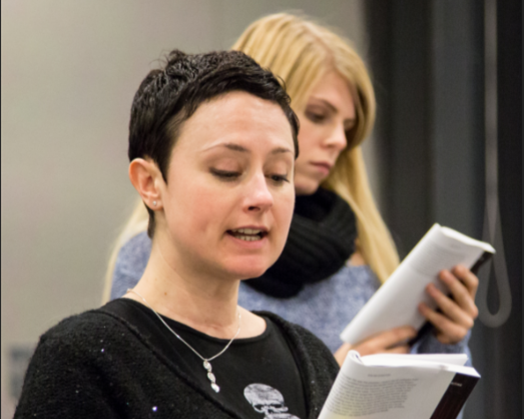
What does inclusivity in a graded music exam look like?
BY: Natalie Christopher
21 June 2023
As music educators, you will be perfectly familiar with the principles of Equality, Diversity and Inclusion, with many of you successfully embedding these throughout your lesson planning and delivery. But how do you carry this good practice forward into your exam preparation? Or, perhaps more importantly, what features are embedded within Trinity's graded exams to you support you in doing so? In this blog, we aim to illustrate the various approaches Trinity has taken to make our exams more inclusive. However, it is also important to note that this does not mean we consider our work in this area complete and, with each new syllabus, we strive to make our qualifications more accessible and inclusive.
The first part of Trinity's mission statement reads as follows:
'Trinity College London believes that effective communication and performance skills are life enhancing, know no bounds and should be within reach of us all.'
In short, we believe in the power of performing arts to transform lives and that nobody should face barriers in participating in them. The challenges that people face in relation to equality and inclusion come in many different forms - physical, cultural, economic, to name but a few - and so the manner in which equitable opportunities are provided must be similarly multi-faceted.
Breadth of repertoire
We talk a lot about our breadth of repertoire, particularly in recent years when we have focused on broadening the diversity of the types of composers included. Whilst the inclusion of more female composers and composers from historically underrepresented backgrounds is an important and symbolic move, it also has a direct impact on our candidates, providing them with a wider range of musical styles and composers who they can learn about and identify with. For example, in our upcoming Piano syllabus, due for release later this year, we will see the inclusion of jazz, Latin and pop styles, as well as pieces from film, musical theatre and computer games.
Options to adapt and personalise your exam performance
There are a number of ways exams can be personalised to the candidate. For example, candidates can perform an own composition or, in Rock & Pop exams, an own choice song, which can be in any musical style.
However, singers might also be interested to know that all songs, in both our Classical & Jazz Singing and Rock & Pop Vocals syllabuses, can be performed by any voice type and in any key. This means that, regardless of gender or vocal range, a candidate can choose a song that they connect with. Backing tracks can also be transposed using the Rock & Pop Transposition Tool. Furthermore, should a candidate wish to change the pronouns used in a song, or adapt the lyrics to something more appropriate to them, they are more than welcome to do so, provided it doesn't change the songs rhythmic complexity.
Opportunities to play to your strengths
Part of our approach to inclusivity is about providing candidates with as many opportunities as possible to play to their strengths. Rather than being too prescriptive in which skills we assess in our exams and potentially influence too heavily what a candidate should learn, we aim to create a range of different assessments which reflect the various elements a student might be learning in their music lessons. This is most evident in our Supporting Tests, which are a feature of our Classical & Jazz face-to-face exams. Here we offer the option of performing two from the following:
- Sight reading
- Aural (with a choice of either Pitched or Unpitched for Drum Kit candidates)
- Improvisation
- Musical knowledge (Initial to Grade 5)
Similarly, Rock & Pop face-to-face candidates have the option of performing either Playback or Improvisation for their Session Skills test.
We can see this approach echoed in our Technical Work options for Classical & Jazz exams where, for most instruments, candidates can choose between performing Scales & Arpeggios or Exercises/Studies/Orchestral or Brass Band Extracts. Besides personal preference, this is particularly helpful for candidates who find the requirement to play scales from memory a challenge.
The opportunity to take an exam in either a face-to-face or digital format is another way in which we hope candidates might be able to overcome barriers to taking music exams. For those not living in close proximity of a Trinity exam centre, the digital alternative provides a mechanism through which they can be recognised for their progression. It also provides an opportunity for those who find the exam room itself prohibitive, allowing candidates to perform from home or an environment in which they are able to give their best performance. And, of course, the construct of the digital exam itself, with Supporting Tests and Session Skills replaced with the Overall Performance criteria, can also provide a more accessible option for those candidates who experience particular challenges with these tests.
In addition to this, from July 2023, Classical & Jazz candidates will have the choice of two different pathways in our digital exams:
- Technical Work pathway - perform repertoire pieces as well as technical work and receive a mark for the overall performance
- Repertoire-only pathway - where an additional piece is performed in place of the technical work and overall performance. This means that most candidates will play 4 pieces instead of 3; Grade 6-8 Singing candidates will be required to sing 5 instead of 4.
Again, this adds an additional layer of choice and flexibility to our exams, so keep an eye out on our website and social media channels for more information over the coming weeks.
Reasonable adjustments
For candidates with SEND, we offer reasonable adjustments to our exam format. For example, candidates can request that Supporting Tests or Session Skills are provided in Braille or enlarged print; they might also request alternative tests if they experience sensory loss. We can also offer extra time in exams, or simply arrange for the examiner to be briefed in order that they are aware of a candidate's condition. All applications for reasonable adjustments are reviewed on a case-by-case basis, so you can be reassured that the specific needs of your candidate are being taken into account.
However, we understand that the format of a graded music exam, in of itself, can be a barrier for some learners. We are therefore delighted to also be able to offer learners our Awards & Certificates in Musical Development. These qualifications have been designed in collaboration with Sounds of Intent and are awarded based on video evidenced recorded in the classroom. For an overview of the Awards & Certificates in Musical Development, why not read our previous blog?
Music & Drama Access Fund
Did you know we have a scheme that offers small grants to students facing barriers to taking Trinity Music & Drama exams? Music & Drama Access Fund grants can be used to pay for a candidate's exam, plus cover additional costs such as tuition, scores and equipment. Want to read some examples of how the fund has helped candidates in the past? Then read our blog: Spotlight on the Music & Drama Access Fund.
A broad range of arts qualifications
Whilst we do as much as we can to make our graded music exams as inclusive as possible, sometimes they are simply not the option that is going to suit a student best. Which is why we ensure that our exam offer covers so much more. For example, our fully inclusive Awards & Certificates in Musical Development are designed to recognise musical learning at all stages of ability and progression; our Arts Award qualifications can be taken in any art form and are a great way of celebrating a young person's achievements in instruments or genres not captured by graded exams; and Music Certificate exams provide an unaccredited, recital-based alternative to graded music exams which can be taken solo or in groups.
To chat with us further about how Trinity exams can support you with your students, why not book a support call with a member of our Sector Support team?
Image by kjpargeter on Freepik




Comments & Replies